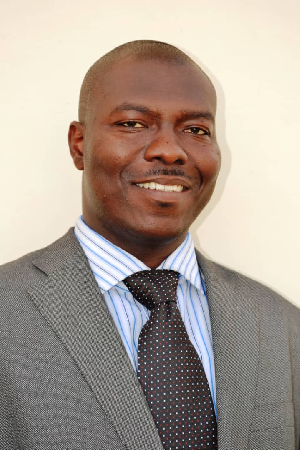- Home - News
- TWI News | TV
- Polls
- Year In Review
- News Archive
- Crime & Punishment
- Politics
- Regional
- Editorial
- Health
- Ghanaians Abroad
- Tabloid
- Africa
- Religion
- Election 2020
- Coronavirus
- News Videos | TV
- Photo Archives
- News Headlines
- Press Release
General News of Thursday, 3 June 2010
Source: GNA
Researchers call for baseline to tackle climate change
Hohoe, June 3, GNA - Academic dons and researchers have said the industrialized world's promise of billions of "new and additional" dollars to help developing nations tackle climate change was meaningless without a baseline from which to count new funds. In a paper published by the International Institute for Environment and Development (IIED), they outlined two workable options for defining a baseline that would balance the demands of donor and recipient nations. The papers would be formally launched on June 5 at a side event during the ongoing United Nations (UN) Climate-Change negotiations in Bonn, Germany.
The paper's authors called for an UN-based system to define baselines and monitor pledges and payments. They said this was necessary if developed nations are to regain the trust of developing countries that was essential for a global climate deal. Last December, the industrialized nations committed to provide developing nations with US$30 billion of "new and additional" funding between 2010 and 2012 as well as US$100 billion per year by 2020. Developing nations fear that to meet this promise, the developed countries would simply rename existing aid budgets or count previous pledges of climate finance.
The papers were authored by Prof Saleemul Huq, Senior Fellow in IIED's Climate Change Group; Professor Martin Stadelmann, Researcher at the Centre for International and Comparative Studies in Switzerland and Professor J. Timmons Roberts, Director of the Centre for Environmental Studies at Brown University, United Sates. Prof. Huq said "Funding from developed countries to help developing nations to tackle climate change has the potential to re-build the lost trust between the two sets of countries but only if it was done properly". He said "agreeing on baselines for assessing "new and additional" climate funds was to key."
Prof. Roberts asked "when is a promise not a promise" adding that ridiculous when there is no specified baseline that would allow anyone to know if the promise has been fulfilled. He said that was the case with the Copenhagen Accord's climate finance promise and the more reason the issue needed immediate attention to get the negotiations back on track.
Prof Stadelmann asked "what would happen, if the European Union's pledge to reduce its emissions by 30 percent by 2020 without indicating, if this percentage is below the 1990 or 2005 levels". He said that was the case in Copenhagen when developed nations pledged without a reference point and therefore without a clear meaning. Prof. Stadelmann demanded for mutual accountability, an international rule that any pledge ought to be accompanied by a baseline. 03 June 10










